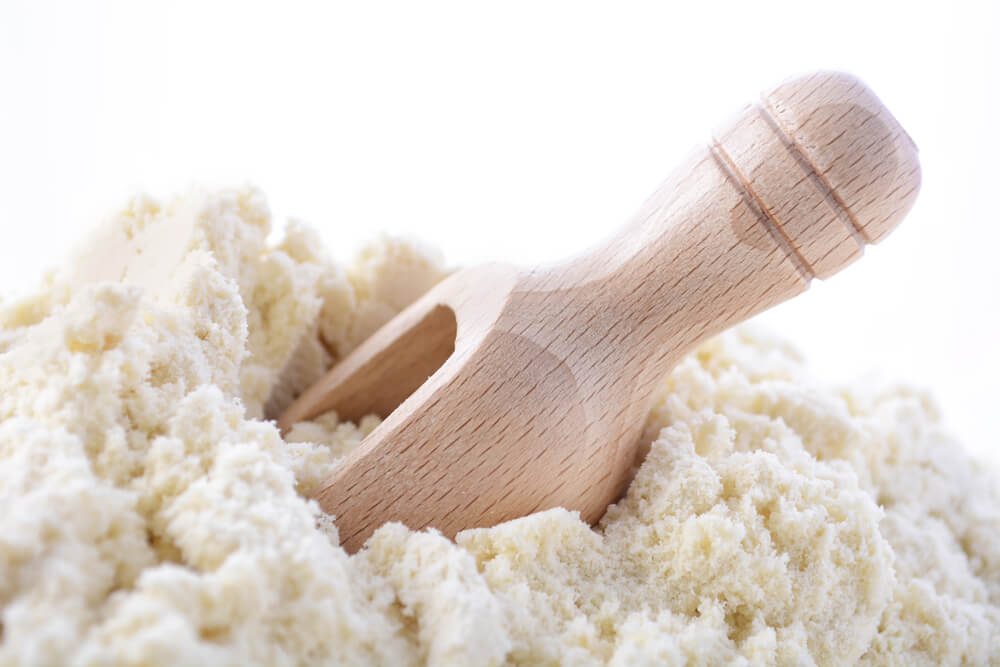
Do you know the whey? In other words, do you know which whey protein is best for you? Don’t worry. We’ve got all the info you need to help you decide. You’re welcome!
Go organic or not?
You may have seen it on the shelves of your local nutrition shop. You may have even picked it up to look at the nutritional value. It looks pretty similar to the whey protein you use right now, so what is the big difference in organic whey versus non-organic whey protein?
The answers to everything you’ve ever needed or wanted to know about organic whey protein are right here.
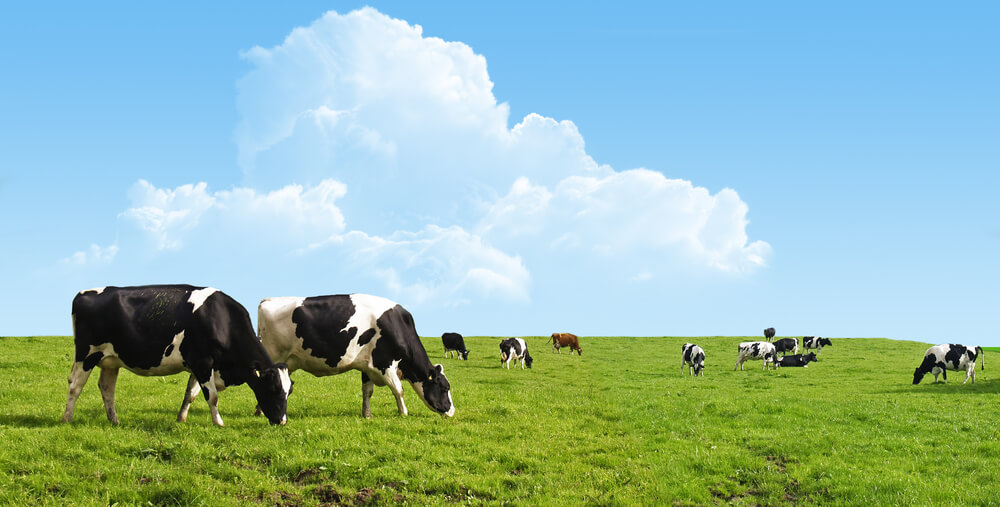
Where Does Organic Whey Come From?
Moo! That’s right. Whey protein’s direct source is typically a cow, a free range cow that grazes in fields of healthy, lush grass. These cows are not confined in poor living conditions and fed whatever supplementation they need for survival. They are not given antibiotics or hormones. They just live a happy lifestyle and go about their day producing the finest quality milk.
The milk is harvested for human consumption. Some milk is soured to convert it to a number of other products like cheese. In this process, an acidic catalyst like lemon juice, or one of many others, can be used to sour the milk. When the milk curdles, there are two products. I will give you a hint as to what they are.
Start reciting the nursery rhyme “Little Miss Muffet.” You know how it goes. Little Miss Muffet, sat on a tuffet, eating her curds and whey! That’s what you get from the process of souring milk, a solid called curds and a liquid-like substance, whey.
Once you divide the curd to make cheese, what you have left is whey. The whey then goes through more processing. Fat is removed, and protein is separated from anything that remains through a drying process.
The final, dried substance is what you normally find for sale on nutrition shop shelves, organic whey protein.
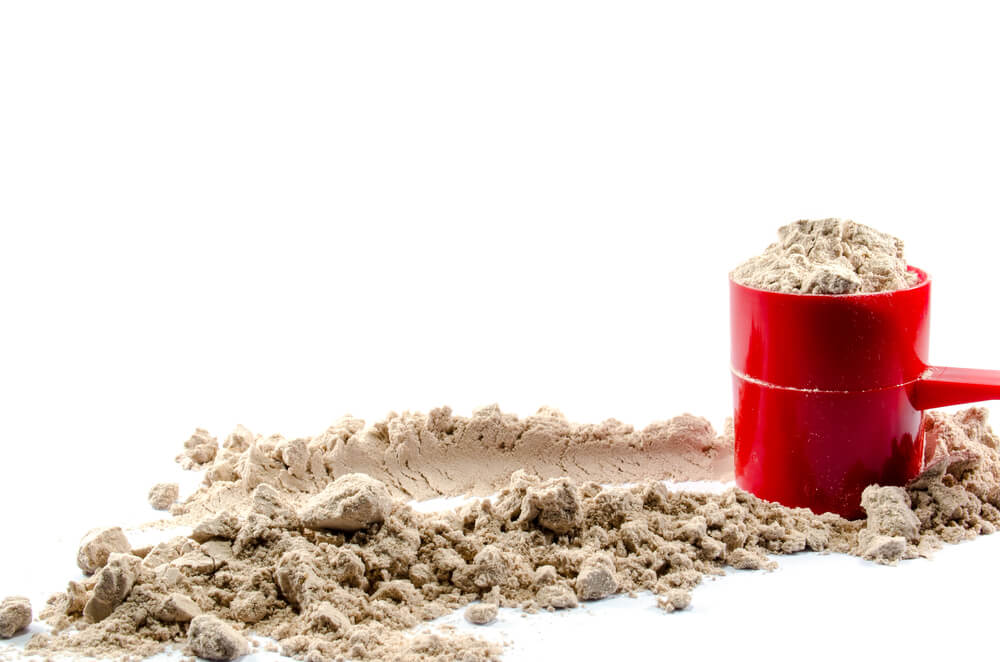
This Is Why Organic Is Better
If you are a health conscious person, you may already be sold on organic whey protein just based on the ethical treatment of animals and the five-star product that you get with all organic produce in general. If you aren’t sold yet, here are more reasons:
Consider Your Protein Consumption
If you are looking for the best results from your diet and exercise, you need to fuel your body with the highest quality foods. When it comes to your powdered protein source, you likely consume at least one serving each day, if not more. That is 365 servings per year. If you select the highest quality foods for your cooked meals, why wouldn’t you also choose the best quality protein?
Go organic!
Are You Concerned About GMOs?
GMOs are genetically modified organisms. If a cow is being fed genetically modified corn or soy products, the milk they produce will be altered and contain GMO. If you are concerned about GMOs and other stuff like pesticides in your food, then you need to go organic. Make sure you buy certified organic and GMO-free. It should be clearly marked on the label.
Lose Weight
Organic whey protein should be a part of a high-protein diet if you are attempting to lose weight. It is especially helpful when consumed after working out. Protein helps your body feel full.
Organic whey contains another special ingredient in high concentration, conjugated linoleic acid, or CLA. It is nearly three to five times higher in organic whey than in non-organic whey products.
Why?
Simple, because cows that consume a natural diet produce more of this very beneficial trans fat. Research suggests that CLA can benefit your body in a number of ways including:
- Boosting metabolic rate – Speeding up the metabolism will increase the rate at which you burn calories. That means weight loss.
- Enhances muscle growth – The more muscle you have, the more fat you burn. This also boosts weight loss.
It’s Better At Moderating Blood Sugar Levels
As mentioned, there is three to five times more CLA in organic whey. CLA is known to lower insulin resistance.
Good news!
What’s that?
It helps prevent diabetes. Not only is organic whey a good snack for healthy people, it could also make a great snack or meal for those who are pre-diabetic or diabetic.
Why?
It Helps Regulate Blood Sugar
It’s Bioactive
Some organic whey protein is bioactive. The National Cancer Institute (2016) states, “Bioactive compounds have actions in the body that may promote good health. They are being studied in the prevention of cancer, heart disease, and other diseases.” Look for a bioactive organic whey protein powder for more, long-term health perks.
Lessen Your Risk Of Antibiotic Resistance
The next global crisis could be antibiotic resistance according to health experts. Due to the alarming amounts of antibiotics used in animals for consumption, and those used for milk production, more antibiotics are getting into our foods. That also means more gets into our bodies.
This causes bad bacteria to genetically mutate and build resistance to the strongest antibiotics found on the market. To protect yourself from antibiotic resistance, you must choose certified organic products. This should include your whey protein.
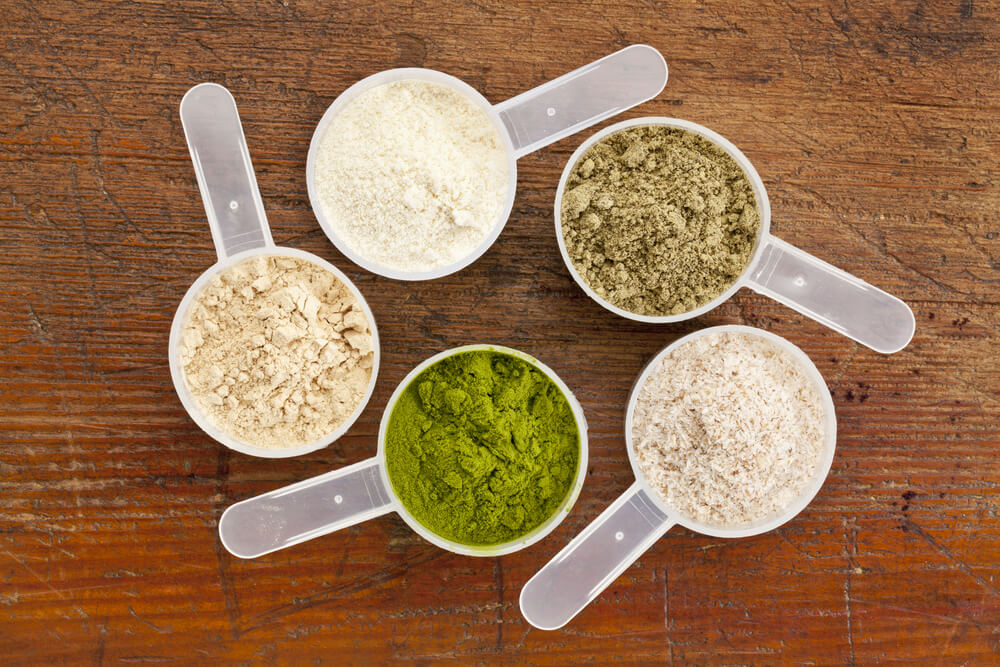
How To Select An Organic Whey Protein
If you truly want freedom from all things artificial, then organic whey is the way to go. It’s a pure product. Most brands offer a 100% clean product free from artificial sweeteners, colors, and preservatives. Not to mention, organic is gluten-free, soy-free and non-GMO. If clean eating is the way you roll, organic whey protein is the cleanest product you can find.
Make sure it has the seal of approval – certified organic. This should be clearly marked on the label. Next, look to the nutrition facts.
Have you ever heard of an amino acid profile?
When you consume protein, your body breaks it down into amino acids. The amino acids are what your body uses to grow and repair muscle. With that said, you want an organic whey that has a high amino acid count. The higher the amino acid profile or count, the better the product you are buying and the more useful your whey will be.
Taking Organic Whey A Step Further
Denatured vs. non-denatured organic whey
What is denaturing?
Denaturing is the process of heating or chemically treating proteins to break peptide bonds leaving the key structure of the amino acid.
Most non-organic whey proteins are denatured through a process that uses chemicals or acids. If you don’t want your food exposed to chemicals or acids, you should purchase organic.
But, beware!
Why?
Some organic whey proteins are denatured. However, you can find organic whey that is denatured through a process called sweet processed. In this process, enzymes are used, not acid or other harmful products.
Or you can purchase non-denatured.
Why?
It is more bioavailable and an immune system booster. Immune Health Science (2008) states, “whey contains a large group of cysteine-rich proteins: alpha-lactalbumin, beta-lactoglobulin, serum albumin, lactoferrin, and immunoglobulins – generally referred to as “lactalbumin” that all remain soluble in whey after separation from casein.”
Organic whey offers one more perk.
What’s that?
If it’s undenatured, it is also more bioavailable because of the high levels of bonded cysteine. If your whey protein is denatured, it is heated to high levels, which break the cysteine bonds.
Non-denatured, however, the bonds stay intact. According to Immune Health Science, this allows the protein to “survive digestion, easily enter the bloodstream, then enter cells and are used there to form glutathione – the body’s own ultimate immune system booster.”
If you are weighing out the health benefits of undenatured, the immune system booster could be the deciding factor.
Note: Denatured or undenatured your body will be able to easily absorb the protein. But, the fact that non-denatured is not already broken down to the main amino acid form does force your body to work harder to break it down. It’s more solid structure, allows it to survive stomach acid digestion and be more bioavailable.

When To Use Organic Whey Protein
Protein is vital to building and repairing muscle. Whether you are a pro athlete, just working out for fun or simply a health nut, you likely already know what you need to eat to fuel your body for finest performance. You likely also understand the importance of recovery.
But, are you aware of when you should be fueling?
Nutrient timing is a strategy for eating at times when your body needs certain food types the most. This means understanding protein consumption before, during and after exercise.
Many health pros claim that if you are following nutrient timing, you will see dramatic body composition results. For example, when trying to grow and build muscle mass, many sports figures consume whey protein both before and after their gym sessions.
Aragon and Schoenfeld (2013) state that, “high-quality protein dosed at 0.4–0.5 g/kg of LBM (lean body mass) at both pre- and post-exercise is a simple, relatively fail-safe general guideline that reflects the current evidence showing a maximal acute anabolic effect of 20–40 g. For example, someone with 70 kg of LBM would consume roughly 28–35 g protein in both the pre- and post-exercise meal.”
In a perfect world, you will figure out your lean body mass and tote your organic whey protein with you to the gym for building muscle. That way you are fueling your body in a calculated way!

Who Is Organic Whey Protein For?
Anyone who is looking to follow a high-protein, low-fat diet can reap rewards from using organic whey. It is great for a vast array of people from serious sports stars to people who work out to stay healthy and choose to live a health conscious lifestyle to those looking to lose weight.
Who Should Not Use Organic Whey Protein?
There are only a small number of people who should not consume organic whey protein.
Who?
This includes people who avoid dairy. If you are lactose intolerant, you should think twice about using organic whey protein.
Why?
It can cause a flare-up of digestive problems.
But, an organic whey protein isolate has reduced lactose content. This can speed up digestion and make the process easier. The amount of lactose per serving is much like the amount you might find in a serving of yogurt. So, some people who can tolerate small amounts will be able to use an isolated formula.
If you are allergic to milk or dairy products, your body may have an adverse allergic reaction to organic whey protein as it’s derived from milk.

This Is How To Use It
Organic whey protein powder is simple to use. It is great for creating healthy, simple shakes, very creative shakes, making healthy snacks and for cooking. Some people use them as a meal replacement. The options are endless. A simple Google or Pinterest search will yield great results.
Directions for use will be provided on the label. The guidelines from the company are the best to follow.
Why?
They have tested the product countless times. Their mixing results will yield the best flavor and the best nutrient content. You should always be aware of the amounts of all foods you consume.
Why?
Over-consumption of even a lean protein source can lead to unwanted weight gain.
Conclusion
When you decide to go organic, you can rest assured that you have chosen a premium product. Your body will thank you for fueling it with a natural and very pure product. It will reward you. Besides aiding you in building your ideal physique, organic whey protein will also bring many other health perks. These will keep you healthy and running into your golden years.
Don’t forget: You could have up to 730 servings per year if you consume protein twice per day. Do what’s best for your body. Give it natural, certified organic whey protein powder.
You’ll be glad you did!
By Sarah Chadwell, CPT
Latest posts by Sarah Chadwell (see all)
- Summer Workout Plan To Lose Weight And Diet Guide - Apr 17, 2017
- The Best Valentine’s Day Workout - Feb 13, 2017
- Top Reasons Your Resolutions Have Already Been Broken And How To Get Back On Track - Jan 31, 2017





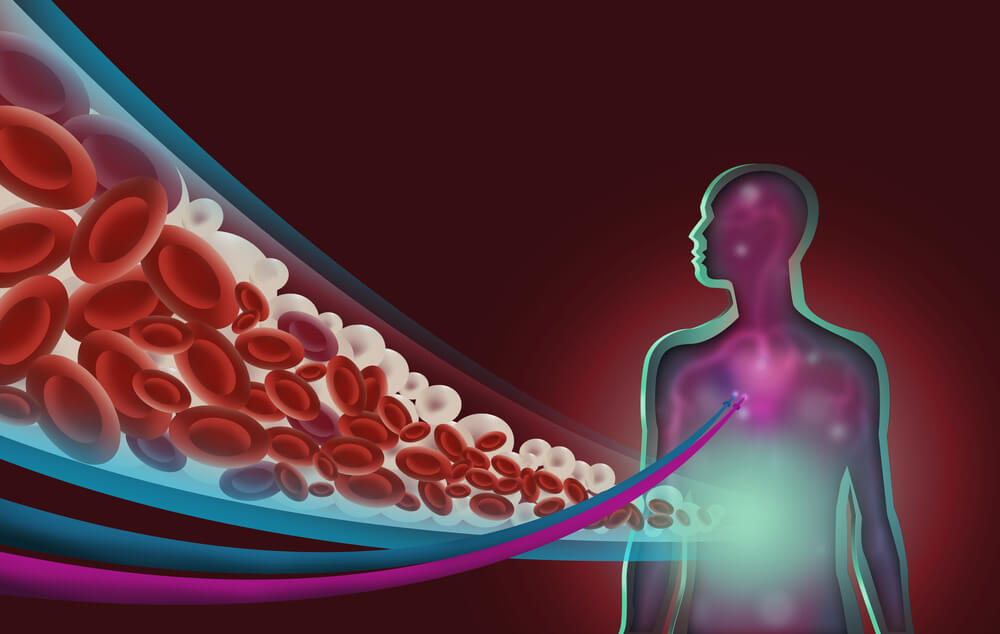





[…] whey protein manufacturers will include not only additional BCAAs into the powder but some will have at […]
[…] whey protein manufacturers will include not only additional BCAAs into the powder but some will have at […]
[…] next, we have the whey-casein protein blend. As the name suggests, this protein powder mixes whey and casein protein. The mixture offers the perfect combination of fast-digesting and slow-digesting […]
[…] next, we have the whey-casein protein blend. As the name suggests, this protein powder mixes whey and casein protein. The mixture offers the perfect combination of fast-digesting and […]
[…] options available, so you’ll find one that checks off your dietary restrictions box. First up is whey protein. It’s the least expensive option and the easiest to find. It also packs a low-calorie punch, so […]
[…] options available, so you’ll find one that checks off your dietary restrictions box. First up is whey protein. It’s the least expensive option and the easiest to find. It also packs a low-calorie punch, so […]
[…] you like to go the organic milk route you’ll probably want to go the organic whey protein route as well. There are some organic whey protein brands out […]
[…] you like to go the organic milk route you’ll probably want to go the organic whey protein route as well. There are some organic whey protein brands out […]
[…] you like to go the organic milk route you’ll probably want to go the organic whey protein route as well. There are some organic whey protein brands out […]
[…] you like to go the organic milk route you’ll probably want to go the organic whey protein route as well. There are some organic whey protein brands out […]
[…] you like to go the organic milk route you’ll probably want to go the organic whey protein route as well. There are some organic whey protein brands out […]